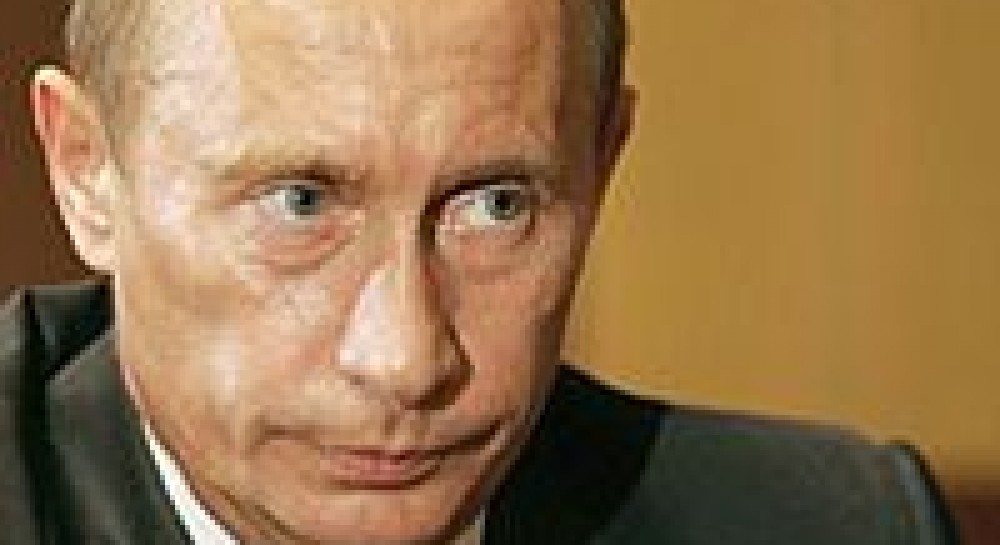
Back off USSR: Russia and Georgia
Mr Putin has yet to come to terms with the loss of the Soviet empire. He has been bullying and undermining the Georgian government, not least in encouraging separatism in its South Ossetia and Abkhazia provinces. It is time for Mr Putin to stop.
The president of Georgia, Mikhail Saakashvili, blinked first. He sought to end a dangerous stand-off with Moscow yesterday by freeing four Russians accused of espionage.
It was a positive gesture, welcomed in western capitals both for humanitarian reasons and for selfish ones, primarily the security of pipelines from the Caspian.
But it was not enough for the Russian president, Vladimir Putin, who on Sunday, in an intemperate comment, described the arrest of the Russians as "state terrorism". He responded yesterday by banning air, sea and land as well postal links with Georgia.
The spy crisis itself is relatively minor and Mr Putin`s decision to ban traffic may in the end prove to be mainly symbolic.
But the stand-off is part of a bigger confrontation, between a former Soviet republic that is democratic, independent and seeking a formal alliance with the west, and a semi-authoritarian Russia that remains proprietorial about what it perceives to be its backyard.
Mr Saakashvili was elected two years ago after the so-called Rose Revolution on a populist, pro-Western agenda. But, as with the Orange Revolution in Ukraine, a sense of disillusion has set in. The promised economic transformation has not arrived and corruption remains endemic.
Facing local elections this week, Mr Saakashvili has opted to play up nationalism, warning of the Russian menace. It is reckless politics, given Russia`s military and economic strength. It is especially foolish since Russia is Georgia`s main trading partner.
So Mr Putin`s irritation is understandable. The US has been increasingly active in Georgia, training the country`s special forces.
The US, even its wildest fantasies during the cold war, could seldom have envisaged the scenario that is unfolding: Georgia seeking Nato membership.
This is the real cause of the present confrontation. Agreement was reached between Nato and Georgia in New York a fortnight ago, on the sidelines of the United Nations general assembly, for "intensified dialogue", the first step towards membership of the alliance. Georgia hopes it could be a full member by 2008, though that may prove over-optimistic.
Yet Mr Putin would have been wise to be magnanimous yesterday. The rail ban is due to begin today: he should lift it immediately.
He would also be wise to end the petty trade restrictions already imposed on Georgia, notably on its famous wine, presently banned in Russia for alleged health reasons.
More importantly, Russia still has 3,000 to 4,000 troops based in Georgia. That is unacceptable for a sovereign country. Mr Putin has said he will stand by a promise to remove them by 2008, but he should remove them sooner.
Meanwhile Mr Saakashvili needs to be more careful in choosing his fights. There is suspicion among Western diplomats that he deliberately sought this confrontation to draw US and European attention to Russian interference.
But, if this confrontation was to escalate into conflict, he would end up a disappointed man. There would be no US help: Georgia is not in Nato yet.
Mr Putin has yet to come to terms with the loss of the Soviet empire. He has been bullying and undermining the Georgian government, not least in encouraging separatism in its South Ossetia and Abkhazia provinces. It is time for Mr Putin to stop.
The unwritten agreement tacitly recognised by most countries in the past, that Latin America should be considered the US`s backyard, has long ceased to be acceptable. The same is true of Russia and its former republics. There are no backyards anymore.
Mr Saakashvili said as much yesterday at a ceremony for the media in which the alleged Russian spies were uncuffed before being flown home.
Georgia is free to make its own choices and, given its treatment at the hands of Russia over the last two centuries, it is, not surprisingly, looking to the west. Mr Putin will have to stomach that.
This article was monitored by the ArtUkraine Monitoring Service for the Action Ukraine Report, Morgan Williams, the editor.
LEAD EDITORIAL: The Guardian, London, UK, Tue Oct 03, 2006

